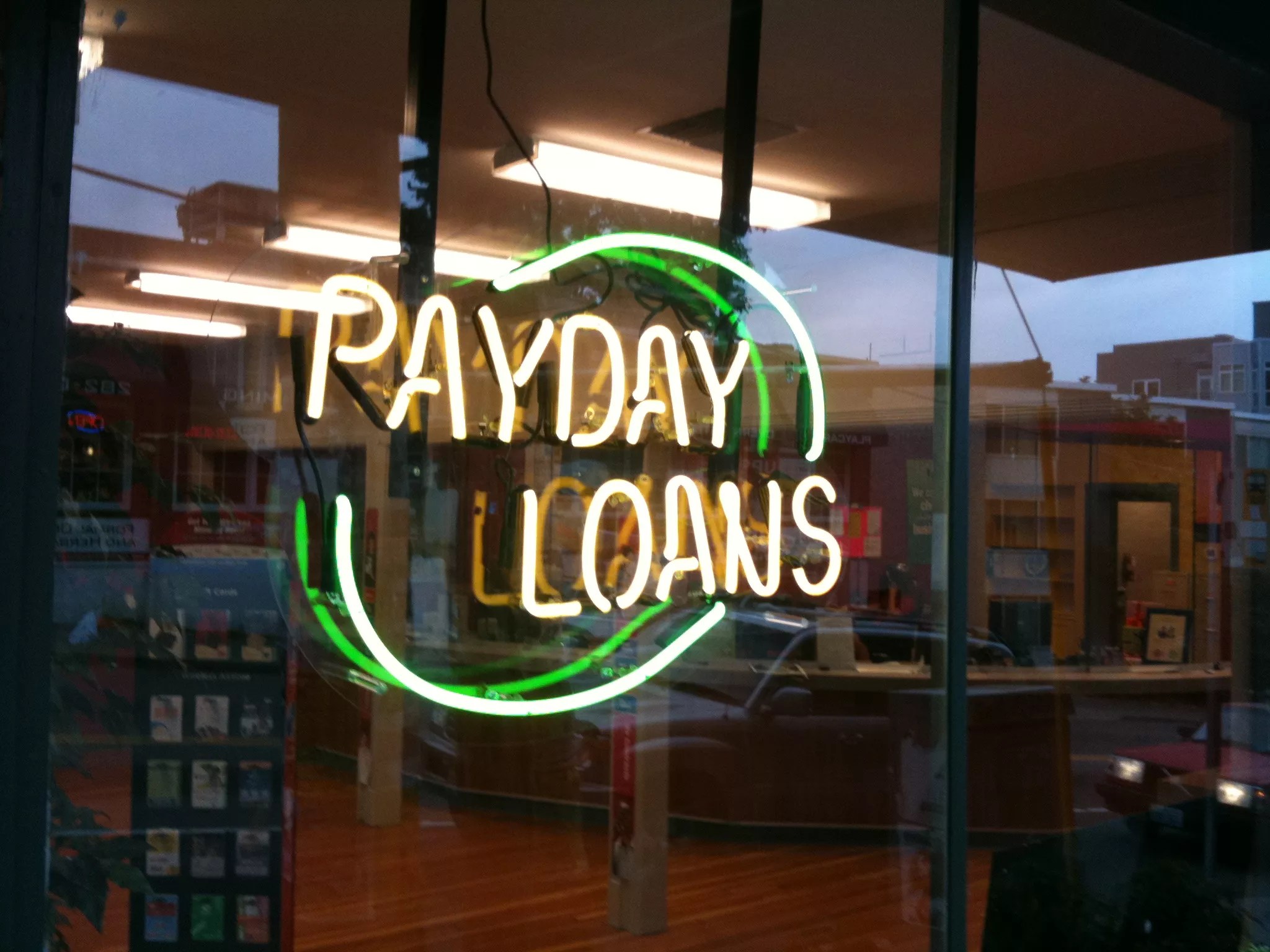
Photo by Scurzuzu / Flickr

Audio By Carbonatix
Last week, dozens of protesters picketed a payday lenders’ conference at Donald Trump’s golf resort in Doral to highlight an industry they say preys on the poor. Around the same time, some Miami-Dade commissioners voted to sign a contract with a payroll loan company that wants to do business with county employees – and that has showered commissioners with thousands in donations.
The Brickell-based BMG Money already has an agreement with Broward County and is now closer to inking a deal with Miami-Dade to let county employees borrow up to $5,000, which would automatically be paid back with deductions from their paychecks. Commissioners will hold a final vote on the plan May 1.
BMG argues it’s different from the traditional payday lenders that activists have long decried as predatory loan sharks. Because BMG’s loans come with a simple interest rate of 23.99 percent, an employee could borrow $1,000 over a yearlong period for an added cost of around $130, the company says.
“We charge in a year what the payday lenders charge in two to three weeks,” says Tom McCormick, BMG’s chief growth officer.
But thousands of dollars of campaign contributions by BMG raise questions about why exactly a committee voted to advance the company’s contract last Tuesday. Since 2010, BMG has given $5,700 to county commission and mayoral candidates, including maximum $500 donations in both 2011 and 2015 to Commissioner Esteban Bovo, who sponsored the plan. Bovo did not respond to New Times‘ questions about those donations.
The contributions are worth noting because BMG has donated to two other local entities with which it later secured contracts. Around the time the company signed on with Jackson Health System, BMG gave $10,000 to a political campaign called Citizens for a Healthy Miami-Dade, which supported the hospital’s 2013 bond referendum. BMG also donated $3,000 to school board candidates from 2011 to 2016 before the board inked a deal with the lender last year.
At the time, a union official representing school employees criticized the arrangement, saying the district would become a “collection agency.”
Overall, BMG doesn’t have the negative reviews and complaints that dog most payday lenders. The company has hundreds of positive online reviews and no history of complaints with the Florida Attorney General’s consumer protection bureau. McCormick says his company would act as an alternative option for county employees who don’t qualify for lower-interest loans at credit unions.
“We are there for the… 15 percent or so who don’t have access,” he told commissioners last week. “These are good people with good jobs, but they had a divorce or a short sale or a medical expense or some reason that their credit score is banged up.”
Commissioner Rebeca Sosa, whose campaign accepted $300 from BMG in 2010, questioned why the county didn’t ask for multiple bids from loan providers, but she ultimately voted in favor of the item. Commissioner Dennis Moss, who has received $1,000 from BMG since 2015, also voted for the contract but said he wanted the county’s Department of Regulatory and Economic Resources to take a look.
“At the end of the day, I just want to make sure that I’m going to be a part of something that’s going to be a benefit, not something that basically allows individuals to be taken advantage of,” Moss said.
Scott Astrada, the federal advocacy director of the Center for Responsible Lending, tells New Times he does not have personal knowledge of BMG but agreed to take a look at the pending county contract. Overall, he says BMG offered a “significantly lower” APR than most payday lenders, but he voices concerns about the lack of specifics in the deal. For one, the contract doesn’t address how BMG will collect its remaining debt if county employees are terminated, laid off, or go on unpaid leave.
“There’s no way to make an informed decision if you don’t know what happens if you can’t repay the loan,” Astrada says. “What happens if you get fired?”
Although employees can take out only one BMG loan at a time, Astrada is concerned there’s nothing stopping employees from taking out back-to-back loans. And he questions the company’s practice of offering loans to employees without doing a credit check or other assessment of their financial situation.
“It doesn’t have to be a full underwriting, but there has to be something more to be sure an employee can afford the loan and it won’t lead them to a worse position than when they started,” he says.